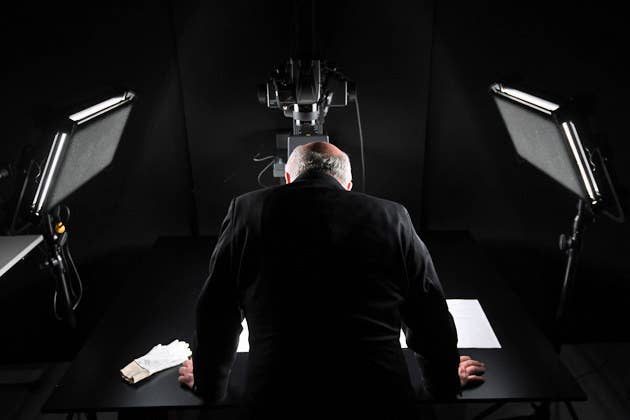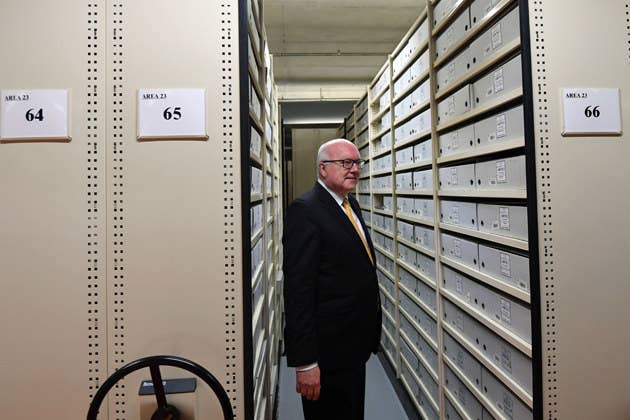Attorney general George Brandis has suggested young people don't care as much about their privacy as previous generations, flagging a controversial crackdown on encrypted messaging platforms.

In the wake of last week's recent terror attacks in London and Melbourne, the federal government has called for online companies to give security agencies freer access to platforms like WhatsApp and iMessage.
On Sunday, attorney-general George Brandis acknowledged on Sky News that civil libertarians had expressed serious concern about the government's recent moves to access encrypted messages.
But he said the public's attitudes towards privacy were changing, pointing to the so-called "Facebook generation".
"I think also community attitudes, particularly among younger people towards the concept of privacy are changing," Brandis said.
"In the Facebook generation when people put more and more of their own personal data out there, I think there is an entirely different attitude to privacy among young people then there was than perhaps a generation or two ago."
He suggested the the majority of people in Australia didn't prioritise privacy over giving security agencies more "tools" to fight terrorism.
"Let the civil liberties point of view be heard, let legitimate privacy concerns always be had regard to, but I think where the community is at at the moment is to prioritise their concern about giving law enforcement and intelligence agencies the tools they need to thwart terrorism."
In an interview with BuzzFeed News, Greens senator Scott Ludlam labelled Brandis' assertions as "just so much bullshit".
"Nobody compels you to go on Facebook and share everything," Ludlam said. "Benchmarking national privacy policy on Facebook's business model does not inspire any confidence in the government's agenda."
"That's before we even get to the technical can of worms he is trying to open up."
Brandis told the Sun Herald he plans to give agencies freer access to encrypted messaging, insisting the government didn't want to force companies like Facebook and Apple to have a "back door" into its messaging platforms.

But the attorney-general said police agencies did need a way to read the messages.
"At one point or more of that process, access to the encrypted communication is essential for intelligence and law enforcement," Brandis said.
"If there are encryption keys then those encryption keys have to be put at the disposal of the authorities."
Ludlam said Brandis didn't understand the concept of a "back door" if he was asking companies to hand over "encryption keys", citing the recent controversy in the US where Apple was being compelled to give the FBI access to the San Bernardino shooter's iPhone.
"Isn't that what a back door is?" Ludlam asked. "A lot of these companies can't read your stuff at the moment even if they wanted to - that's the whole basis of the San Bernadino case with Apple."
"Brandis manages in the same breath to say he doesn't want backdoors, he just wants the encryption keys, where to even begin?"
